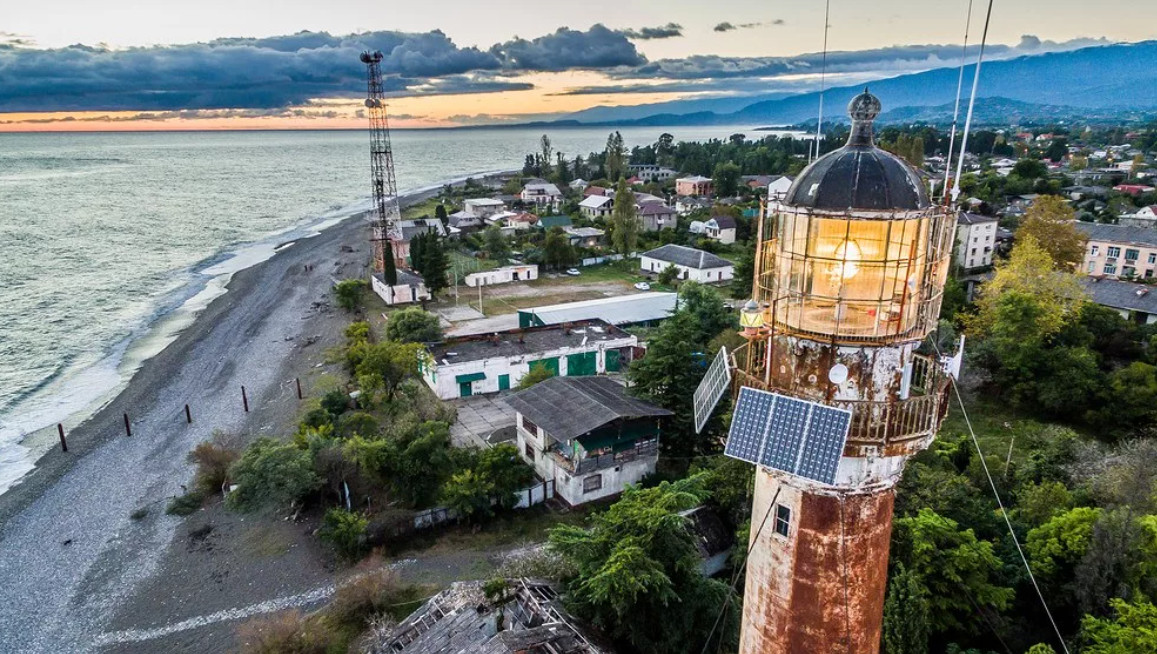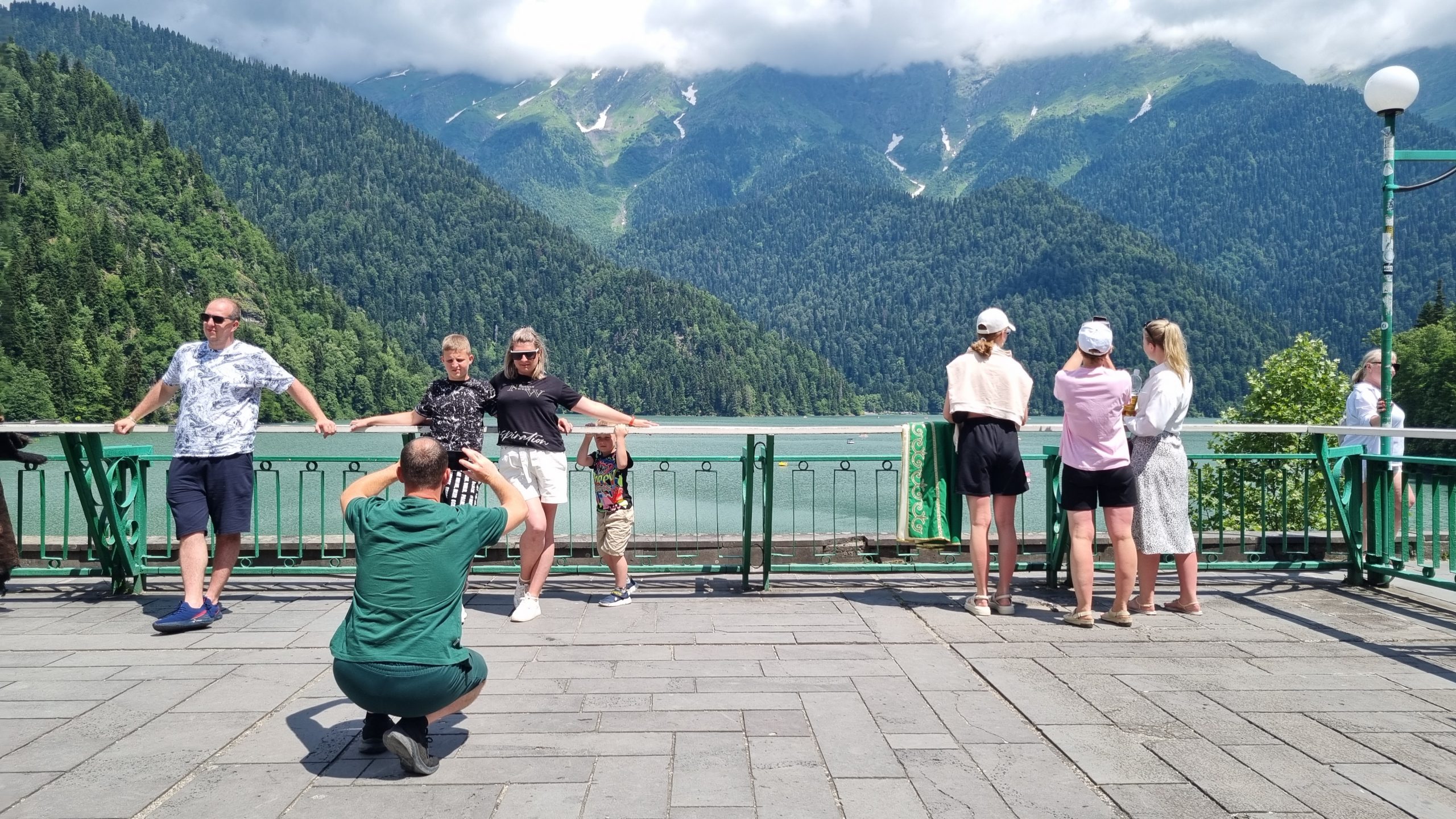Aslan Bzhaniya "instructs" parliament to adopt a law on apartments in Abkhazia
Apartments in Abkhazia
President of Abkhazia, Aslan Bzhaniya, stated that the parliament must adopt a controversial law on apartments. Some of the deputies perceived this as a violation of the Constitution and pressure on the legislative authority. Inal Hashig, an Abkhazian editor at JAMnews and the chief editor of the newspaper “Chegemskaya Pravda,” explains what he was implying and why some deputies felt indebted to the president.
“Indeed he must!” Commenting on the actively promoted apartment law draft in the Public Chamber, Bzhaniya stated the following:
“We will not delay or drag this out for a hundred years. We will have the discussion in July, and the parliament must make a decision. Indeed it must! Indeed it must!”
Such an authoritative tone has outraged the deputies. Three of them (out of a total of 35 deputies in the Abkhazian parliament), Kan Kvarchia, Erik Rshthuni, and Naur Narmania, held a specially convened press conference, stating that the president, by pressuring the parliament, is violating the constitution.
Erik Rshthuni: “I would like to remind everyone, in case someone doesn’t know, that in the Constitution of the Republic of Abkhazia, in Chapter 1, Article 7, it is clearly stated that state power in the republic is exercised based on the separation of legislative, executive, and judicial branches, which are independent. I would also like to add regarding the statement about someone owing something to someone else. First and foremost, I owe my homeland, my parents, my people, and the voters who delegated me to parliament.”
Kan Kvarchia: “Tomorrow we will have a committee meeting, and I will request that this draft law be returned to the president. In the form it exists today, I find it entirely unacceptable even for the first reading. If we take it as a basis and adopt it in the first reading, I will consider that we have simply abandoned our principles, we are starting to betray our country, our people, and the hopes of the people for a brighter future.”
- Russian oligarch building an “enclave” in Abkhazia
- Law on apartments in Abkhazia – a “time bomb for Abkhazian-Russian relations”?
“10,000 apartments = 100,000 foreigners”
The draft law that has sparked significant public resonance proposes the construction of 30,000 apartments in Abkhazia over a period of 10 years, with the intention of selling them to foreigners (particularly Russians).
The authorities believe that this will give a significant boost to the Abkhazian economy and greatly contribute to the republic’s budget.
In turn, opponents of the apartment law are convinced that it signifies a veiled lifting of the ban on the sale of residential property to foreigners.
According to their predictions, the construction and sale of 30,000 apartments will result in the settlement of 100,000 foreigners in Abkhazia. Considering that the current population of the republic is 240,000 people, this could have a significant impact on the demographic landscape. In fact, to prevent this scenario, the prohibition on selling property to foreigners was introduced.
Although the apartment draft law does not imply that its owners will be eligible for Abkhazian citizenship, there are no guarantees that this rule will not undergo changes in the future.
Comment by Inal Khashig: “And if they really should?”
President Aslan Bzhaniya, for whom the issue of apartments is perhaps the most important on his agenda (at least it looks like this from the outside), believes that the deputies of parliament owe him.
At the same time, Bzhaniya knows that the deputies who were indignant at this statement of his – that is, the oppositionists Kvarchia, Rshtuni and Narmania – are not listed as debtors to him. In fact, the president’s words were addressed to other deputies, who, according to Aslan Bzhaniya, really owe him. Because without support in the form of an administrative resource and a certain amount of money during the parliamentary elections, they would not have got into parliament.
One can only guess about the number of deputies who owe the president, but Bzhaniya himself is sure that the number of debtors exceeds the number of deputy votes required for the law on apartments to be adopted.
In general, in the Abkhaz system of government – not in the one that is set out on paper, but in the real one – the president is almost a king. The government, the parliament, the court, the prosecutor’s office and, in general, everyone who does something on behalf of the “Republic of Abkhazia” owes him. And not only Aslan Bzhaniya has such powers – all his predecessors as president had them.
Someone still justifies such an ugly concentration of power in one hand by saying that “otherwise it will be a complete mess.”
For me, “a complete mess” is when we, the citizens of Abkhazia, are concerned about the form, and not the content of Aslan Bzhaniya’s phrase: “How could the president say that the deputies owe him ?!”
But, if they really owe him, why don’t we resent it? Why are there any debt obligations between the president and the deputies that are not prescribed by law, but we don’t care?
So it is more correct to ask the question: Why do the deputies owe the president?
Toponyms, terminology, views and opinions expressed by the author are theirs alone and do not necessarily reflect the views and opinions of JAMnews or any employees thereof. JAMnews reserves the right to delete comments it considers to be offensive, inflammatory, threatening or otherwise unacceptable




















